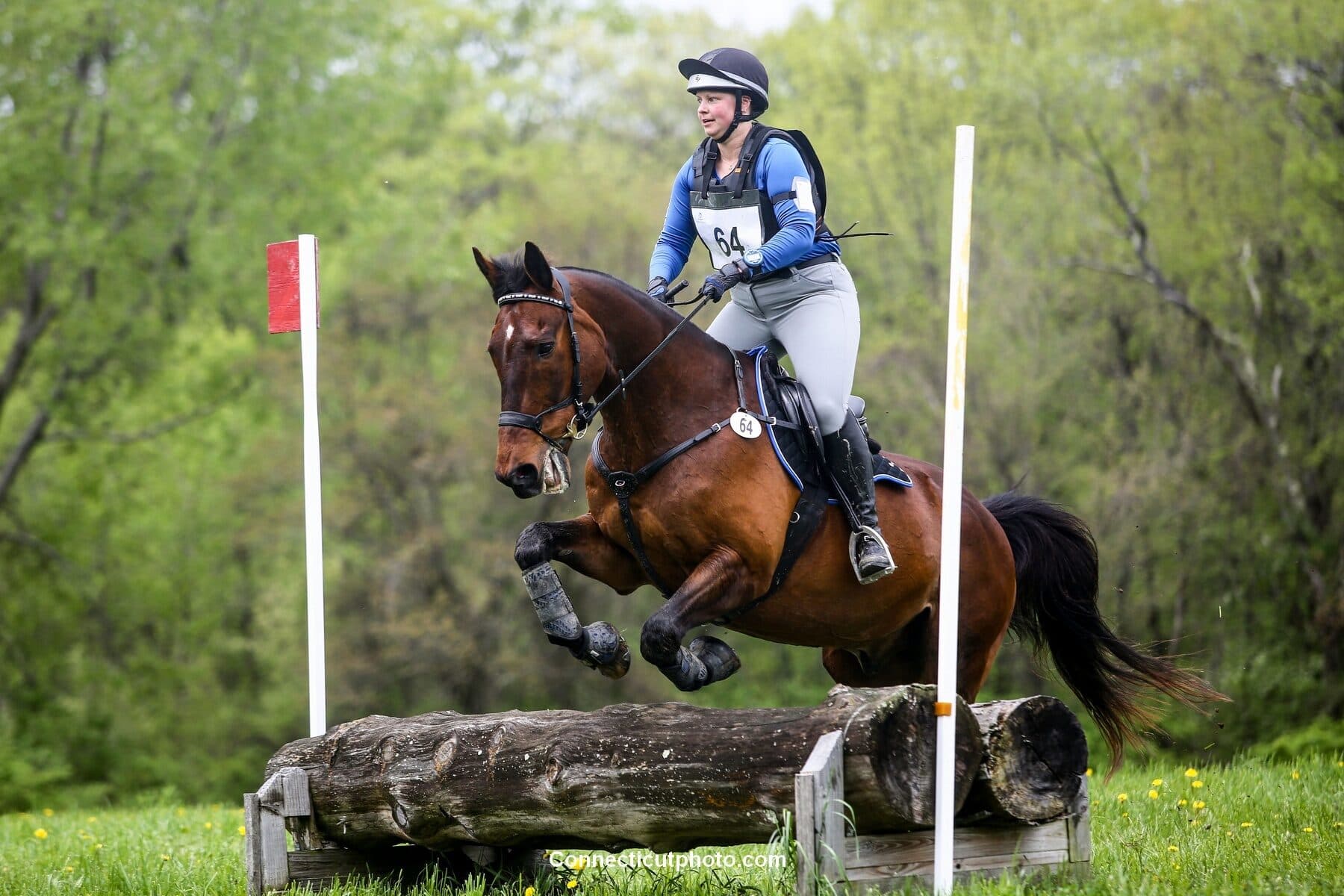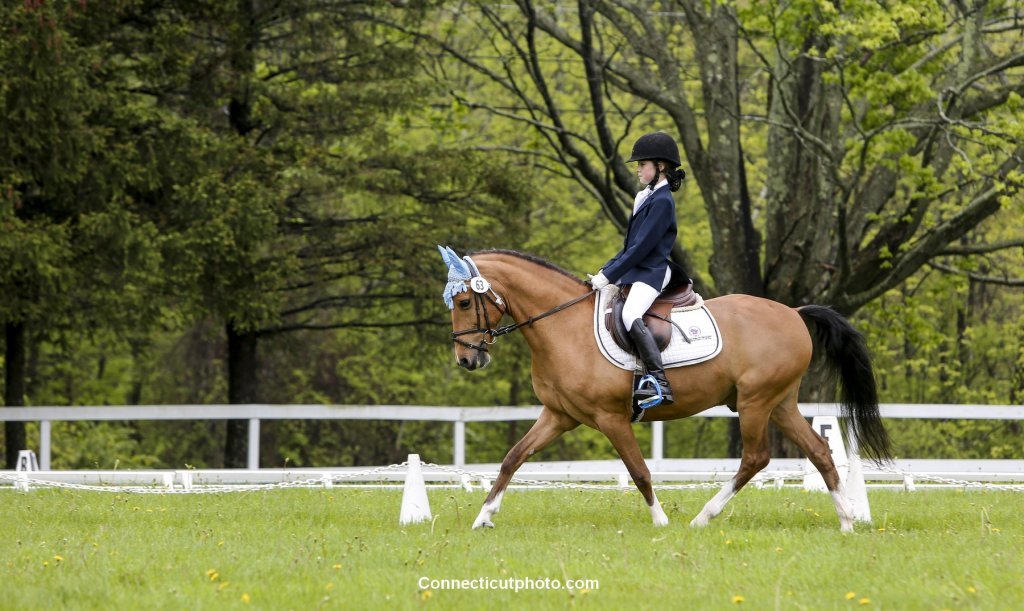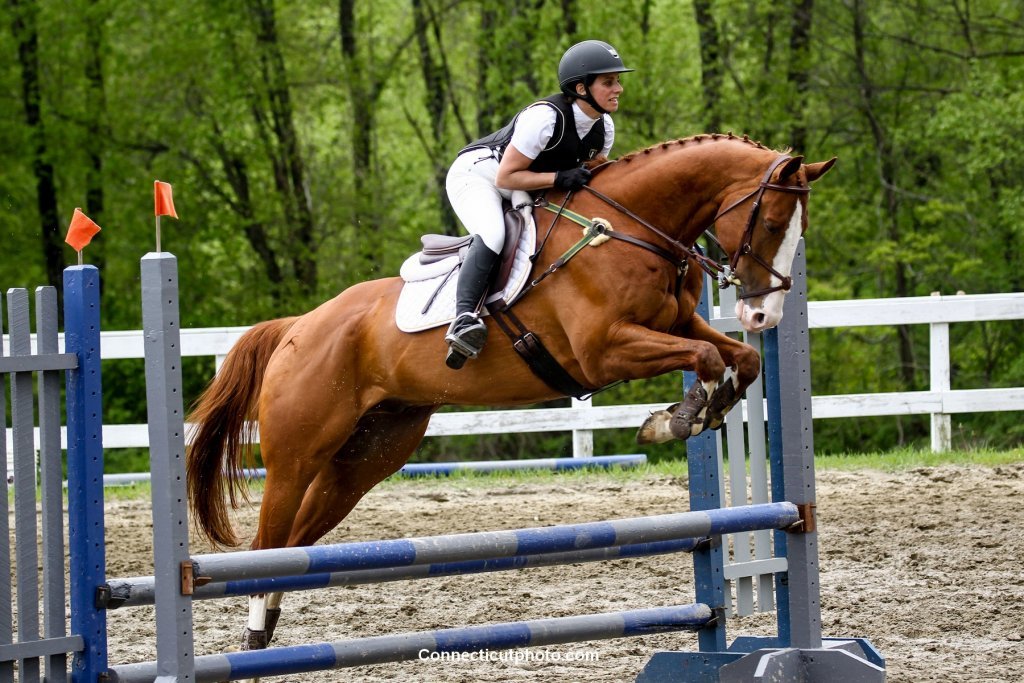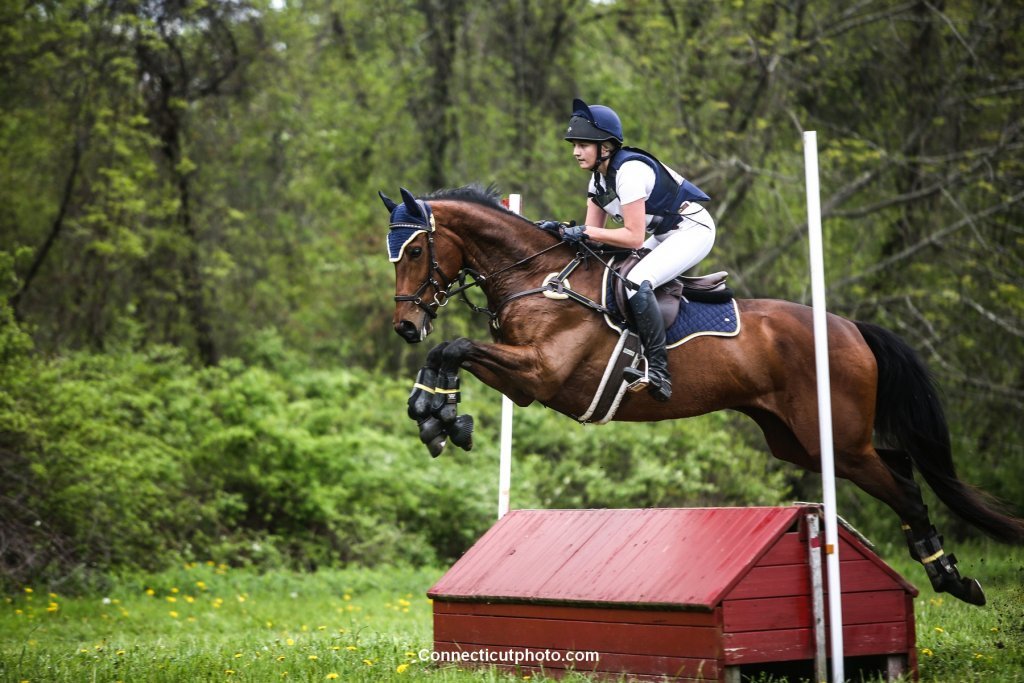USEA Events A-Z: Kent School Horse Trials

The Kent School Horse Trials in Kent, Connecticut (Area I) are held twice a year in the spring and the fall as a one-day event offering Introductory through Preliminary/Training level.
Kent School was founded in 1906 by Reverend Frederick Herbert Sill, an Episcopal monk and graduate of Columbia University and the General Theological Seminary. Reverend Sill imagined a school where students focused on self-reliance and stewardship and appreciated the educational value of service and respect of one’s self and of others.
Sidney Norwood Towle ‘31 served as Headmaster of Kent School from 1962-1981, and he and his wife, Nancy, were very involved in the hunter/jumper world. It was during his stewardship of the school that the Kent School Stables were constructed on the top of Skiff Mountain. The facility has grown over the years and now contains an indoor arena, two outdoor sand rings, a hunter field, a grand prix field, and cross-country course for Introductory through Training level.
The first horse trials at Kent School were held on the first weekend of October in 1980 and offered Preliminary, Training, and Pre-Training (otherwise known as Novice) levels. Hart Perry was the rowing instructor at Kent School at the time and his wife, Gillian, took over the organization of the Horse Trials shortly after they began. It was through Gillian that the event’s current organizer, Raymond Denis, became involved.

“The budget was limited, and so the horse trials were really fun but not fancy,” recalled Denis. “They’ve remained in that culture of a great place to start a young horse or an inexperienced eventer or to move up. Being on the historic site of Kent School at Skiff Mountain is also fun. Once you get there it’s like you couldn’t be any closer to heaven without actually being there.”
Much of the land where the Kent School Horse Trials is held was for sale in 2009. Property developers were under agreement to purchase the for 1.5 million dollars when the existing neighbors of the Kent School Stables stepped up to preserve the stable and surrounding woods. Ultimately, the existing landowners were able to protect 705 acres on Skiff Mountain through a conservation easement funded by the U.S. Forest Service Forest Legacy Program with help from The Trust for Public Land.
In 2011 Hart passed away from a stroke and Gillian decided to step down from the organization of the event. Denis had worked with Gillian as a Technical Delegate and technical advisor to the event for many years, and he offered to take over organization of the event.
With events at the start and the end of the Area I competition season, Kent School’s low-key atmosphere and inviting cross-country courses make it ideal for a young horse’s first event or a rider’s move up to the next level. “[The event] has a wonderful culture of professional standards with a friendly atmosphere. It’s like stepping back 25 years ago to that era of eventing but the standards are per the standards of today.”

In the last few years, the Kent School Horse Trials have teamed up with the Upper New York/Southern Connecticut Pony Club to host Pony Club Rallies in conjunction with the event. “For them to run a rally is very expensive and they don’t get the support that they need, so I said, ‘Come on over to our event and host your rallies there and it’ll increase our numbers and it will give you a rally that’s a recognized event.’ It’s been working out really well. We have 15 pony clubbers coming to rally [at our October event.]”
Denis explained that because the Pony Club has historically used the Kent School to host their dressage and hunter/jumper rallies as well, the Pony Club supplies all the fence judges for the Kent School Horse Trials in return for the use of the facilities. “They really work hand in hand with us.”
The riding program at Kent School supports multiple disciplines, so occasionally an event rider in the riding program will compete at the horse trials. The riders that don’t compete in still come out to support the event by volunteering. “They come in two shifts from 8:00 a.m. to 12:00 p.m. and 12:00 p.m. to 4:00 p.m. to help out and they’re very enthusiastic about it,” Denis said. “It’s a great character-building opportunity for them.”

Typically, the Kent School Horse Trials receives 90-120 entries, allowing them to run over one day and maintain that small community feel. “The fact that it’s a one-day trial and it’s very user-friendly [set the event apart],” observed Denis. We have the best officials available, so the standards are up to national standards but it’s very low-key. The atmosphere and the culture are in line with degree of difficulty of the cross-country and show jumping; it’s easygoing. Just enough challenge to make it a competition, but it’s stress-free.”
“When you walk across those fields, you know that you’re stepping on soil that has been used for nothing more than equestrian activity for over 40 years,” concluded Denis. “It’s a nice welcoming feeling. I think there’s no one in Area I that has not at one time come to Kent School, either as a competitor or as an official. Plan on having some fun and bringing your family and friends along to watch because it’s a great atmosphere for that and a great place for an outing!”
The USEA is profiling the history behind all USEA recognized events in the USEA Events A-Z series.















